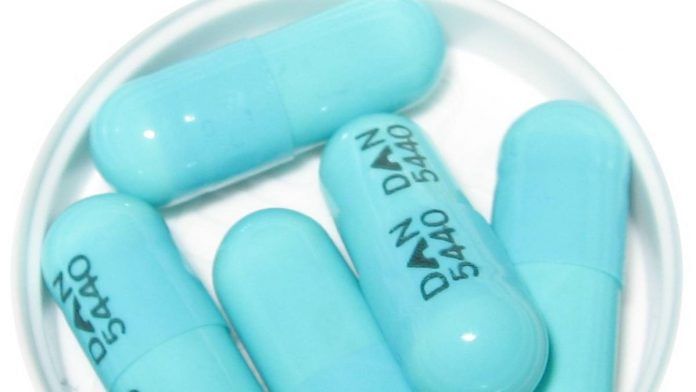No benefits of Doxycycline found in UK Covid patients, write Oxford researchers in Lancet study

Text Size:
New Delhi: Doxycycline, an antibiotic that is being used to treat Covid-19 respiratory symptoms, has been found to not reduce the recovery time, hospital admissions, or deaths related to SARS-CoV-2 infections, according to a study published in the journal Lancet Thursday.
The researchers from the University of Oxford, UK, recommended, therefore, that the drug should not be used as a routine treatment for Covid-19.
Despite the lack of evidence from clinical trials to support its use, India’s Covid treatment guidelines also recommended the use of doxycycline, until the guidelines were revised last month.
Doxycycline is an inexpensive antibiotic used to treat many different bacterial infections, such as acne, urinary tract infections, intestinal and respiratory infections, gonorrhoea, chlamydia, syphilis and others.
Many research groups around the world started advocating its use after a study by researchers at the University of Texas in May last year found that the drug could interrupt SARS-CoV-2 replication in cells in petri dishes.
“Doxycycline is often used for treating COVID-19 respiratory symptoms in the community despite an absence of evidence from clinical trials to support its use. We aimed to assess the efficacy of doxycycline to treat suspected COVID-19 in the community among people at high risk of adverse outcomes,” researchers wrote in the study, that had included 1,728 participants.
Also read: Why 25-50% of vaccine side-effects are ‘anxiety-related and not a result of Covid jab’
Testing the efficacy of Doxycycline on Covid patients
The researchers conducted a clinical trial of interventions against Covid-19 in older people across primary care centres in the UK.
The trial included people aged 65 years or older, or 50 years or older in those with comorbidities. Comorbidities in this study included weakened immune system, heart disease, hypertension, asthma or lung disease, diabetes, stroke or neurological problem, and obesity, all of which have been associated with worse Covid outcomes. The average age of the participants was 61.1 years.
Researchers studied those who had been unwell for about 14 days with suspected Covid-19 or a positive PCR test for SARS-CoV-2 infection.
Participants in the study were randomly assigned to different groups. The first group of 948 people received usual care (supportive treatment to alleviate symptoms) only. Another group of 780 people got usual care along with oral dose of doxycycline — 200 mg on the first day, then 100 mg once daily for the following six days.
The team then collected data on the recovery, hospitalisation or deaths due to Covid-19, and found little difference in terms of average time to recovery between those who got doxycycline compared to those who did not.
As many as 41 people with Covid either needed hospitalisation, or died due to Covid-19 in the groups that received doxycycline. In the groups that did not receive doxycycline, 43 people needed hospitalisation, or died.
There were five deaths in the doxycycline group, compared to two deaths in the usual care-only group.
The team concluded that among patients with suspected Covid-19 in the UK — who were at high risk of adverse outcomes – treatment with doxycycline was “not associated with clinically meaningful reductions in time to recovery or hospital admissions or deaths related to COVID-19, and should not be used as a routine treatment for Covid-19.”
(Edited by Poulomi Banerjee)
Also read: Animal trials suggest intranasal version of AstraZeneca shot may prevent Covid transmission
Subscribe to our channels on YouTube & Telegram
Why news media is in crisis & How you can fix it
India needs free, fair, non-hyphenated and questioning journalism even more as it faces multiple crises.
But the news media is in a crisis of its own. There have been brutal layoffs and pay-cuts. The best of journalism is shrinking, yielding to crude prime-time spectacle.
ThePrint has the finest young reporters, columnists and editors working for it. Sustaining journalism of this quality needs smart and thinking people like you to pay for it. Whether you live in India or overseas, you can do it here.
Support Our Journalism
